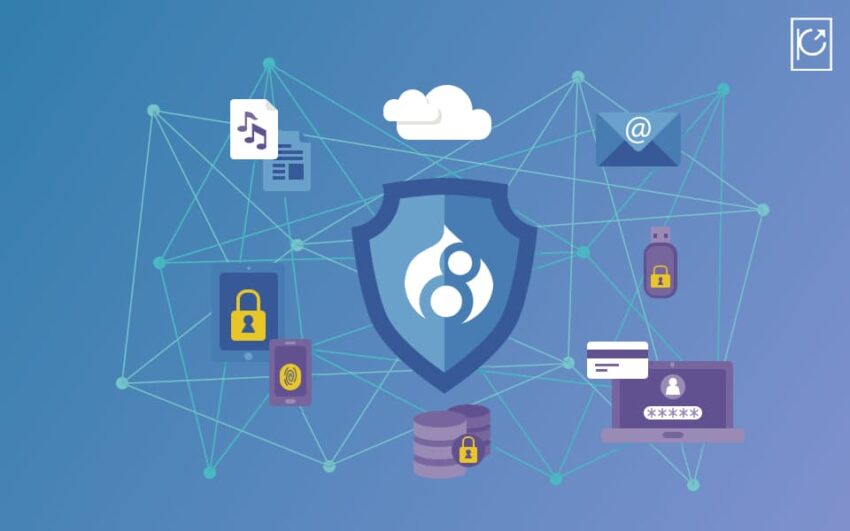
The process of setting up a new website for your business is exciting. A new site provides the opportunity to really cement your brand and convey to the digital world why your company is the best at what they do.
But, have you considered how best you are going to secure your site? Every day we hear new reports of hackers gaining access to the personal data of online users or taking over a website and ransoming it for millions of dollars.
Using an established CMS platform, such as Drupal, and hiring out the services of a team providing Drupal development in Melbourne are two steps that you can take to help secure your site and protect the information of its users.
What is Drupal?
Drupal is one of the world’s most popular content management systems, or CMS. Most websites you use on a daily basis are a CMS and many of them have been built using Drupal!
A CMS enables users to add, edit, publish, and remove content from a webpage with ease. Many people incorrectly assume that CMS platforms are only for developer newbies or those with limited web skills. In fact, most web developers use CMS platforms to build websites of all different shapes and sizes. The office websites of the White House, Oxfam, and the British Government have all been built using Drupal.
Drupal is an ‘open source’ CMS, which means that it is maintained by a community of developers, rather than one singular corporation. Anyone can be a part of this community that works together to shape and improve the features and usability of the Drupal platform.
Drupal has thousands of different themes available, making it easy to build a custom website that reflects your company and brand. Many developers love using Drupal because of the many possibilities that the platform offers. While it’s not recommended for complete beginners — there is a rather steep learning curve involved in setting up your website and making sure it functions correctly — the platform has all the elements required to build beautiful, custom designed pages.
Securing a CMS platform
Security is fast becoming the number one concern for web developers and users alike. Unfortunately, hackers are finding new and inventive ways to compromise online security every day.
There are a range of strategies that developers can employ to ensure that their websites and website users are protected against security threats.
For starters, be sure to regularly keep Drupal and its security modules up to date. Just as Apple regularly releases updates with patches that protect against emerging threats, so too do CMS platforms. By downloading the latest version of Drupal, you can be certain that you are protected against known security concerns.
Security modules that should be installed on every Drupal website include Login Security (limits the number of login attempts), Captcha (blocks bot logins), Session Limit (limits the number of users who can be logged in for any one session), and Automated Logout (grants the administrator power to log users out after a specific time period).
Developers should always know who can log in to their site and what level of access they have been granted. Drupal supports four levels of access — administer, access, create, and maintain — and it’s important that the site administrator has full knowledge as to who is accessing their site and what powers they hold.
As is the case with any online account, developers should practise good password security (set a strong password using a combination of uppercase, lowercase, numbers, and special characters) and set up two-factor authentication.
In addition to these measures, it’s recommended that users and developers regularly check the Drupal ‘security advisories’ page, which is maintained by the Drupal community. The page keeps an updated record of current security threats affecting the Drupal platform.
Worried about website security? Leave it to the professionals
All businesses with an online presence have a right to be concerned about website security. This is particularly true for websites that hold a large amount of personal customer data — a prime target for online criminals.
If your website suffers a data breach, you could be liable for personal damages caused to your customers — particularly if you have not kept your website security up to date.
If your site has been built using Drupal, you’re in luck as it is one of the most secure CMS platforms out there. However, as demonstrated above, simply using Drupal is not enough. It takes skill and knowledge to make the most of the security settings offered by the platform.
As such, if you are looking to set up a new website, it is highly recommended that you contact a team that provides professional web development services. Website security is certainly an area that you can’t afford to skip out on, and professionals have a well developed knowledge of how best you can protect your site and customer data on the Drupal platform.
After all, you can’t put a price on the reassurance that comes from knowing that your information is protected and your Drupal site is secure.
Tech World Times (TWT), a global collective focusing on the latest tech news and trends in blockchain, Fintech, Development & Testing, AI and Startups. If you are looking for the guest post then contact at techworldtimes@gmail.com

